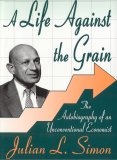
But because the administration continues to listen only to the usual suspects, that window of opportunity is closing fast. And bear this in mind: Whatever he imagines, Osama bin Laden can't destroy Western civilization. Carbon dioxide can.Yikes.
Netflix shows what economists have known for years: that consumers think beyond simplistic value propositions such as a flat monthly fee divided by number of movies watched. They consider flexibility a value that's worth paying for, says Jim Griffin, CEO of Cherry Lane Digital, a specialist in rights management for songwriters and movie studios. "They're paying a flat fee for the anarchistic use of the content," he says. "That's an important part of the system."I hope Griffin is right. A good business model can make all the difference in the world.
For decades, businesses have enjoyed this privilege, what Griffin calls pool (in contrast to per piece) economics. Restaurants, health clubs and other public venues can all pay the music industry a flat fee for the use of whatever songs they want. Netflix simply extends the buffet model to consumers.
"Disney CEO Michael Eisner keeps saying that if we can't control all the content, we won't let it out there," Griffin says. "But that's historically incorrect. It's the lie being used to shove digital-rights management down people's throats. The truth is that with radio, television, satellite TV and webcasting, we've always let content out. This is the future, and our past."
I've been using NetFlix since November of 2001, but I guess I'm one of those consumers that didn't "think beyond simplisitic value propositions" so I made a mental calculation of how many discs per month I could rent and determined it was worth it.
Spotted via Listen Missy.
11:12 AM
"A Truly Loathsome Toad" is the heading for Brad DeLong's slamming of Andrew Sullivan and a reprint of an article from the Economist on Zambian copper mining. Read the whole thing. The article on Zambia is better than DeLong's summary would lead you to believe.
7:21 AM
Wednesday, June 05, 2002
The new template seems to be working. Thanks, Robyn!
9:09 PM
Max B. Sawicky has a post on his website that is illustrative of the way different people think about economic issues. Sawicky is responding to a posting on another web log run by Stefan Sharkansky that, in turn, criticizes Sawicky's 1999 article "Seattle Stew: Why You Won't Like the WTO". The difference, as stated by Max, is between looking at issues from a consumer stand point or a wage earner standpoint. Max favors the latter while Stefan favors the former (as do I).
I think the case for the consumer standpoint is very strong. Max says, "one's ability to consume can be hampered by a lack of income". This is quite true, but income is an indirect measure of well-being while "ability to consume" is a direct measure. Surely no one would say that a wage earner was better off with twice the salary but three times the prices for the things he bought. Max quips, "If you think delivering pizzas is better for wage earners than working on an auto assembly line, than alas we are fated to forever disagree." But I don't think either one is better. What matters to me is how the purchasing power of consumers is affected by different sets of economic rules. If, for example, one proposes tariffs to protect the wage earner on the auto assembly line, shouldn't I also be concerned about how that tariff affects every other wage earner who buys a car? How much worse off should we make our pizza delivery boys in order to improve the lot of the auto assembly workers?
6:14 PM
Krugman vs. the Blogosphere: Blogdex rounds up all the pro- and anti-commentary on Krugman's latest column right here.
7:14 AM
Tuesday, June 04, 2002
"Shut City Hall!" is the title of a column by Steve Landsburg that examines the cost of government in light of a recent Supreme Court decision.
6:43 PM
Monday, June 03, 2002
I didn't realize they posted Krugman's column so early. "Greed Is Bad" is already up. Comments to follow.
Comments: Krugman sums up the problem:
[W]e can see the [corporate finance] theory's fatal flaw: a system that lavishly rewards executives for success tempts those executives, who control much of the information available to outsiders, to fabricate the appearance of success. Aggressive accounting, fictitious transactions that inflate sales, whatever it takes.OK, if this is truly the problem, then what is the solution? Limit the amount of stock a CEO can buy in his own company? What alternative set of rules would result in a more desirable outcome? Krugman has no reforms to suggest. That isn't necessarily a fatal flaw to the column. After all, even if one has no prescription for a problem, an accurate description is the right place to start. Fortunately, I think there is a hint of a prescription in the description. If getting accurate information to investors is the key to the problem, then we have a guide to reform. Altering the laws on insider trading could allow more economically efficient production of information for investors and do so in a decentralized manner. I think Krugman would be horrified at that reform, but I think that there is a good case to be made that criminalizing insider trading has harmed corporations and the economy. No doubt what Krugman really has in mind is a more command-and-control solution, such as more onerous regulation of accounting standards.